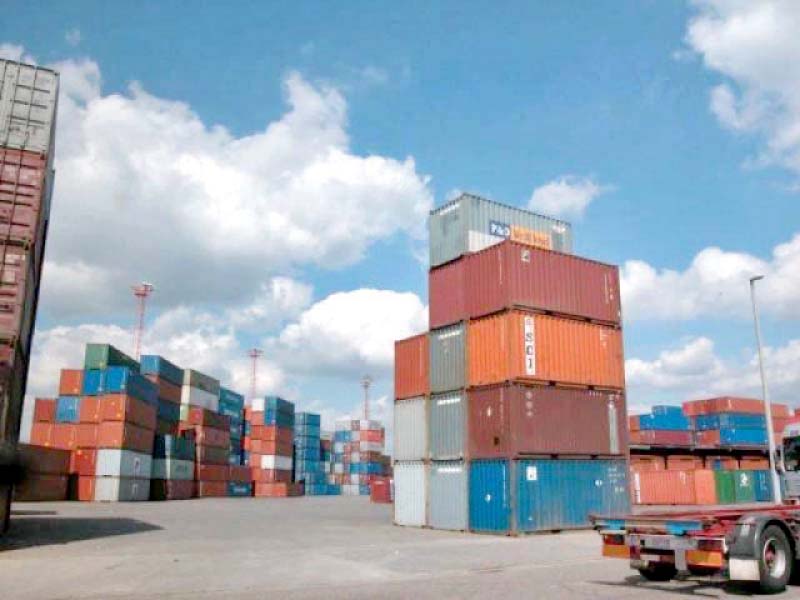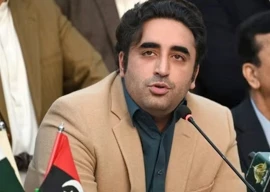
China has appeared as a powerful economic player and has taken lead in refining the global economic and governance system. It is not a surprise as emerging powers always steer change in the existing system.
However, the approach taken by China is different from others. It is trying to do so by building partnerships and by not creating fuss. It is building platforms, which should be beneficial for all the participants and contributors, and the Shanghai Cooperation Organisation (SCO) is one such platform.
SCO was created to resolve issues related to border management and security but later its scope was widened. At present, SCO is the biggest regional organisation in terms of its size and population. Its members constitute about 45% of the world population, 23% of land mass and 25% of gross domestic product (GDP) of the entire world. The total worth of GDP is $14.5 trillion.
China opens up finance sector to more foreign investment
The focus of this organisation is gradually shifting towards economic linkages and development of member countries. Chinese prime minister in 2004 urged all SCO countries to work for free trade among member states.
At the heads of state meeting in 2018, it was emphasised that the trade procedure should be simplified for intra-regional trade.
In 2019, the SCO’s declaration again asked member states to accelerate efforts for wider economic cooperation and enhancing trade.
China is championing the cause. It has already been noted that China has increased its trade with SCO members in the past few years. At present, the total trade of China with SCO members is worth $337 billion – including countries having the status of observer and dialogue partner - exhibiting 19% growth.
China’s major trade partners are Russia and India with trade worth $106.65 billion and $95.87 billion respectively. India is the biggest export destination with shipments worth $77.02 billion and Russia is the biggest exporter to China in the SCO group with exports of $58.58 billion.
SCO’s two leading members - China and Russia - have presented their visions of future economic development and trade through the Belt and Road Initiative (BRI) and Eurasia Economic Union (EEU). These two initiatives present excellent prospects for economic development in future.
Forging links with SCO bloc
Being a member of SCO, Pakistan has an excellent opportunity to revive its economy with the help of the regional bloc, its platforms and member states.
However, to capitalise on the opportunity, Pakistan will have to devise a relevant policy. First, it should learn from the past. Earlier, Pakistan made many mistakes and the prominent ones included ignoring SCO countries, missing the dynamics of Central Asian states and too much reliance on western markets.
Although in recent years Pakistan has increasingly focused on the Chinese market, it lacks any major policy for developing economic and trade ties with Russia and Central Asian states.
Central Asia provides an opportunity for two-way trade. Pakistan has the potential to export finished products and some agricultural commodities. On the other hand, it can benefit from energy and mineral resources of Central Asia.
Russia can help Pakistan develop scientific knowledge and adopt new technologies. Pakistan can benefit from the Russian market too. Russia is also interested in using Gwadar Port for trade.
Unfortunately, current trade statistics are very poor with SCO members, except for China. Pakistan’s exports to Uzbekistan are worth only $17 million and imports are valued at $33.31 million. In trade with Kazakhstan, Pakistan’s exports and imports stand at merely $86 million and $33.11 million respectively.
Trade with Tajikistan is also not encouraging as Pakistan’s exports stand at only $94.06 million and imports are valued at $33.45 million. Although Kyrgyzstan is a very vibrant economy of Central Asia, Pakistan’s trade with it is very low. Pakistan’s exports to Kyrgyzstan are worth $15.11 million and imports stand at $0.121 million.
In trade with Russia, the statistics show a very discouraging picture. Russia is one of the leading economies and a developed country. Owing to the troubled history of relations between the two countries, Pakistan’s trade with Russia is very slim.
According to international trade statistics, Pakistan’s total exports to Russia are only $157 million and imports are worth $375 million. Of late, Pakistan and Russia are trying to improve their economic relations.
SCO and China have provided an opportunity to both countries to break the ice and now they are working on further improvement with high hopes.
Lastly, economic linkages with India are very weak. Though both countries are neighbours, bilateral trade is very low compared to the potential. At present, Pakistan’s total imports from India are worth $1.8 billion and exports are valued at $350 million.
It means Pakistan has not been able to benefit from the potential of Indian market. Moreover, there is also a huge volume of illegal trade. However, there is hope that SCO will help to break the ice and pave the way for better ties between the two neighbours.
In the case of Central Asia, major reasons for insignificant trade include low priority attached to the region and self-perceived assumptions. Pakistan has consistently ignored the region and has not tried to learn the governance system and market structure of these countries.
‘Quality education, trained manpower pivotal for development’
Lessons
The discussion presents two important lessons for Pakistan. First, Pakistan should exploit these markets for economic revival. Second, SCO provides an excellent opportunity to create linkages as the bloc has proposed that all countries should try to simplify trade procedures and work for a free trade agreement.
We should learn from China. China has many issues with India but its trade volume is approaching a staggering $100 billion. China has also developed trade linkages with Taiwan despite massive differences.
Lastly, Pakistan must study markets and governance structure of all SCO member countries. A comprehensive understanding of markets and governance structures will help Pakistan devise a prudent policy.
The writer is the executive director of Zalmi Foundation
Published in The Express Tribune, July 22nd, 2019.
Like Business on Facebook, follow @TribuneBiz on Twitter to stay informed and join in the conversation.


1672385156-0/Andrew-Tate-(1)1672385156-0-165x106.webp)







1732011525-0/Express-Tribune-(8)1732011525-0-270x192.webp)






COMMENTS
Comments are moderated and generally will be posted if they are on-topic and not abusive.
For more information, please see our Comments FAQ